
The Sustainability of Small and Medium-sized Enterprises (SMEs) in A Digital Economy Era
Title : The Sustainability of Small and Medium-sized Enterprises (SMEs) in A Digital Economy Era
Researcher : Dr.Tanakorn Limsarun
Department : Master of Business Administration, Siam University, Bangkok, Thailand
E-mail : dr.tanakorn@siam.edu
Abstract : In an economic downturn, the adoption of digital economy and utilization of Information Technology with Small and Medium-sized Enterprise (SMEs) seem to be increasingly important and becoming a new foundation for entrepreneurs today.These are believed to offer a number of advantages regarding the effi ciency, effectiveness, and innovation across the business functions which can lead to more productivities and new opportunities in the market. This will directly induce a great number of new entrepreneurs in the market, removing market barriers and enhance the competitive advantages especially from the SMEs sector – the backbone of the economy in most countries. However, it is not a straightforward task. On one hand, myriads of new entrepreneurs are enjoying the new opportunities that their older generations never had and at the same time their customers are also adjusting their consumption behavior from the old ways to the digital ways very well. On the other hand, researches have found that most SMEs still face the problems in relation to how they can digitize their business structures and functions such as fi nance, marketing and human resources and above all international cooperation. Therefore, this paper aims to highlight key success factors and provide a guideline for SMEs how to start successfully in the key emerging markets as well as introduce key sustainability factors in a digital economy era. The fi ndings of this research should prove valuable to any size of businesses and create a greater awareness of the advantages of the digital economy and business sustainability of SMEs. In sum, it was shown that SME entrepreneurs had to carefully consider the relevant organizational and individual factors as well as the degree of innovation adoption in the organization in order to warrant their business successes in this post-modern business era, the digital economy.
Key words : Sustainability, Small and Medium-sized Enterprises (SMEs), Digital Economy
Publication : วารสารวิชาการบริหารธุรกิจ สมาคมสถาบันอุดมศึกษาเอกชนแห่งประเทศไทยฯ ปีที่ 4 ฉบับที่ 2 กรกฎาคม-ธันวาคม 2558
Journal of Business Administration The Association of Private Higher Education Institutions of Thailand Vol.4 No.2 Jul-Dec 2015
Link to Publication: https://www.tci-thaijo.org/index.php/apheitvu/issue/view/8163
Download PDF : The Sustainability of Small and Medium-sized Enterprises (SMEs) in A Digital Economy Era
Bibliography : Tanakorn Limsarun. (2015). The sustainability of small and medium-sized enterprises (SMEs) in a digital economy era. Journal of Business Administration The Association of Private Higher Education Institutions of Thailand, 4(2), 113-124.
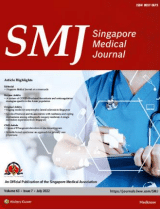
Thoracic endometriosis with catamenial haemoptysis and pneumothorax: Computed tomography findings and long-term follow-up after danazol treatment (2015)
Title : Thoracic endometriosis with catamenial haemoptysis and pneumothorax: Computed tomography findings and long-term follow-up after danazol treatment
Researcher : Suwatanapongched, T., Boonsarngsuk, V., Amornputtisathaporn, N., [mfn]*[/mfn]Leelachaikul, P.
Department : 1 Faculty of Medicine, Siam University, Bangkok, Thailand
E-mail : med@siam.edu
Abstract : Thoracic endometriosis (TE) is an uncommon disorder affecting women of childbearing age. We herein report clinical and thin-section computed tomography (CT) findings of two cases, in which one woman presented with catamenial haemoptysis (CH) alone and another woman presented with bilateral catamenial pneumothoraces (CP) coinciding with CH, a rare manifestation of TE. The dynamic changes demonstrated on thin-section chest CT performed during and after menses led to accurate localisation and presumptive diagnosis of TE in both patients. Following danazol treatment, the patient with CH alone had a complete cure, while the patient with CP and CH had an incomplete cure and required long-term danazol treatment. We discuss the role of imaging studies in TE, with an emphasis on the appropriate timing and scanning technique of chest CT in women presenting with CH, potential mechanisms, treatment and patient outcomes.
Keywords: catamenial haemoptysis, catamenial pneumothorax, pleural endometriosis, pulmonary endometriosis, thoracic endometriosis
Link to Academic article: doi: 10.11622/smedj.2015115
Journal :Singapore Medical Journal, 2015, 56(7)./ in Scopus
Bibliography : Suwatanapongched, T., Boonsarngsuk, V., Amornputtisathaporn, N., & Leelachaikul, P. (2015). Thoracic endometriosis with catamenial haemoptysis and pneumothorax: Computed tomography findings and long-term follow-up after danazol treatment. Singapore Medical Journal, 56(7), e120–e123. doi: 10.11622/smedj.2015115
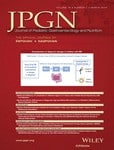
Tolerance development in cow’s milk-allergic children receiving amino acid-based formula with synbiotics: 36-Months follow-up of a randomized controlled trial (PRESTO Study) (2024)
Title : Tolerance development in cow’s milk-allergic children receiving amino acid-based formula with synbiotics: 36-Months follow-up of a randomized controlled trial (PRESTO Study)
Researcher : Pantipa Chatchatee, Anna Nowak-Wegrzyn, Lars Lange, Suwat Benjaponpitak, Kok W. Chong, Pasuree Sangsupawanich, Simone R. B. M. Eussen, Marleen T. J. van Ampting, Manon M. Oude Nijhuis, Jane E. Langford, Valerie Trendelenburg, Robert Pesek, Carla M. Davis, Antonella Muraro, Michel Erlewyn-Lajeunesse, Adam T. Fox, Louise J. Michaelis, Kirsten Beyer, PRESTO study team
Department : Faculty of Medicine, Siam University, Bangkok, Thailand
E-mail : med@siam.edu
Link to article : Journal of Pediatric Gastroenterology and Nutrition, 2024, 78(3), pp. 699–703. https://doi.org/10.1002/jpn3.12104
Citation : Chatchatee, P., Nowak-Wegrzyn, A., Lange, L., Benjaponpitak, S., Chong, K. W., Sangsupawanich, P., Eussen, S. R. B. M., Ampting, M. T. J., Oude Nijhuis, M. M., Langford, J. E., Trendelenburg, V., Pesek, R., Davis, C. M., Muraro, A., Erlewyn-Lajeunesse, M., Fox, A. T., Michaelis, L. J., & Beyer, K. (2024). Tolerance development in cow’s milk-allergic children receiving amino acid-based formula with synbiotics: 36-Months follow-up of a randomized controlled trial (PRESTO Study). Journal of Pediatric Gastroenterology and Nutrition, 78(3), 699–703. https://doi.org/10.1002/jpn3.12104
Journal : Journal of Pediatric Gastroenterology and Nutrition / in Scopus
ฐานข้อมูลงานวิจัย มหาวิทยาลัยสยาม : –

Tourists’ and tourism suppliers’ perceptions toward crisis management on tsunami (2013)
Title : Tourists’ and tourism suppliers’ perceptions toward crisis management on tsunami
Researcher : Bongkosh N. Rittichainuwat
Department : International Program in Hotel & Tourism Management, Siam University, 235 Petkasem Rd., Phasichareon, Bangkok 10160, Thailand
E-mail : Bongkosh N. Rittichainuwat ngamson@gmail.com
Abstract : This study describes tourists’ perceptions toward the importance of safety measures across tourists who stay at different types of accommodation; compares the pre and post analysis of such safety measures during normal time and six months after the disaster and identify safety measures that contribute the most to the sense of beach safety. This study uses a survey, interviews, and observation. The target population was inbound tourists traveling to Thai beaches. It was found that respondents who participated in the survey six months after the March 2011 Japanese tsunami placed more importance on almost all tsunami safety measures than those who did the survey six years after the Indian Ocean tsunami. Guests at guest houses, placed the highest importance on all safety measures, whereas guests at upscale hotels, placed the lowest importance. Moreover, perceptions of beach safety were dependent on the availability of a tsunami evacuation system and a crisis management plan.
Publication : Tourism Management Vol.34 February 2013
Link to Publication: https://www.sciencedirect.com/journal/tourism-management/vol/34/suppl/C
Bibliography : Rittichainuwat, B. N. (2013). Tourists’ and tourism suppliers’ perceptions toward crisis management on tsunami. Tourism Management, 34, 112-121. https://doi.org/10.1016/j.tourman.2012.03.018
Author details in Scopus: Rittichainuwat, Bongkosh Ngamsom
Scopus Citations: https://www.scopus.com/sources.uri?DGCID=Scopus_blog_post_check2015
Google Scholar Citations: https://scholar.google.com/citations?user=ifUlKJoAAAAJ&hl=en
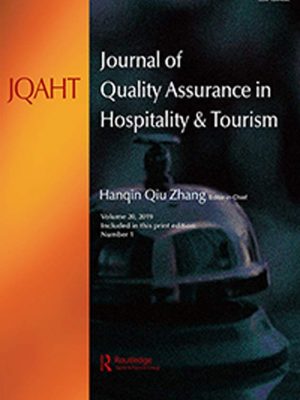
Tourists’ Motivations to Travel during Financial Crisis (2014)
Title : Tourists’ Motivations to Travel during Financial Crisis
Researcher : Bongkosh N. Rittichainuwat, Goutam Chakraborty & Suphaporn Rattanaphinanchai
Department : Service Industry Management, Siam University, Bangkok, Thailand
E-mail : Bongkosh N. Rittichainuwat ngamson@gmail.com
Abstract : This study aims to describe the motivations of tourists to travel during financial crises and to identify the impact of those travel motivations on the likelihood that tourists would travel during financial crises. The findings suggest short-distance destinations, novelty, and culture would motivate tourists during financial crises; but tourist recreation would deter them from traveling domestically. This study enriches the literature on the travel motivations of domestic tourists, particularly Thai tourists, to travel during financial crises.
Publication : Journal of Quality Assurance in Hospitality & Tourism Vol.15 No.1 January-March 2014
Link to Publication: https://www.tandfonline.com/toc/wqah20/15/1?nav=tocList
Bibliography : Rittichainuwat, B. N., Chakraborty, G. & Rattanaphinanchai S.(2014). Tourists’ motivations to travel during financial crisis. Journal of Quality Assurance in Hospitality & Tourism, 15(1), 100-113. DOI: 10.1080/1528008X.2014.855541
Author details in Scopus: Rittichainuwat, Bongkosh Ngamsom
Scopus Citations: https://www.scopus.com/sources.uri?DGCID=Scopus_blog_post_check2015
Google Scholar Citations: https://scholar.google.com/citations?user=ifUlKJoAAAAJ&hl=en

Tourists’ Perceived Risks Toward Overt Safety Measures (2013)
Title : Tourists’ Perceived Risks Toward Overt Safety Measures
Researcher : Bongkosh N Rittichainuwat
Department : Service Industry Management, Siam University, Bangkok, Thailand
E-mail : Bongkosh N. Rittichainuwat ngamson@gmail.com
Abstract : This study aims to assess tourists’ perceptions toward overt safety measures. The study segments tourists into four different groups depending on their perceptions toward overt safety measures, type of accommodation, and purpose of visit. A total of 476 respondents were segmented into special occasion tourists, leisure mid-priced tourists, frequent business travelers, and backpackers. A two-step cluster analysis and ANOVA were used to analyze the data. The results show that, all clusters, except the backpacker segment, feel quite safe toward overt safety measures. Whereas the special occasion tourists at luxury hotels felt the safest toward overt safety measures, they concurrently were the most likely discouraged with too-stringent overt safety measures. Although most tourists feel safe about overt safety measures, a stringent increase in safety measures could frighten them because such measures could create a false perception that something untoward has previously happened at the destination. Hence, the old claim that stringent safety measures frighten tourists remains a classic rule of thumb. Therefore, hoteliers must find an appropriate balance in the extent of overt safety measures so as not to exceed the acceptable safety threshold of tourists.
Publication : Journal of Hospitality and Tourism Research Vol.37 No.2 May 2013
Link to Publication: https://journals.sagepub.com/toc/jhtd/37/2
Bibliography : Rittichainuwat, B. N. (2013). Tourists’ perceived risks toward overt safety measures. Journal of Hospitality & Tourism Research, 37(2), 199–216. https://doi.org/10.1177/1096348011425494
Author details in Scopus: Rittichainuwat, Bongkosh Ngamsom
Scopus Citations: https://www.scopus.com/sources.uri?DGCID=Scopus_blog_post_check2015
Google Scholar Citations: https://scholar.google.com/citations?user=ifUlKJoAAAAJ&hl=en
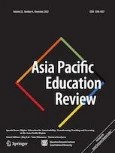
Transforming learning for sufficiency economy philosophy and sustainable development through the triangle of living learning lab (2022)
Title : Transforming learning for sufficiency economy philosophy and sustainable development through the triangle of living learning lab
Researcher : Rukspollmuang, C.
Department : Siam University, Bangkok, Thailand
Link to article: Asia Pacific Education Review, 2022, 23(4), pp. 595–610. https://doi.org/10.1007/s12564-022-09804-2
Journal : Asia Pacific Education Review / in Scopus
Bibliography : Rukspollmuang, C. (2022). Transforming learning for sufficiency economy philosophy and sustainable development through the triangle of living learning lab. Asia Pacific Education Review, 23(4), 595–610. https://doi.org/10.1007/s12564-022-09804-2
ฐานข้อมูลงานวิจัย มหาวิทยาลัยสยาม : –
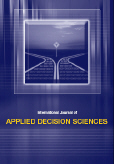
Treatment process conformance checking of patients (with sepsis and septic shock) in compliance with SSC and WMA using fuzzy miner algorithm in Fluxicon Disco (2023)
Title : Treatment process conformance checking of patients (with sepsis and septic shock) in compliance with SSC and WMA using fuzzy miner algorithm in Fluxicon Disco
Researcher : Porouhan, P.
Department : Graduate School of Information Technology, Siam University, Bangkok, Thailand
E-mail :
Link to article: International Journal of Applied Decision Sciences, 2023, 16(4), pp. 385–421 https://doi.org/10.1504/IJADS.2023.131830
Publication: International Journal of Applied Decision Sciences / in Scopus
Bibliography : Porouhan, P. (2023). Treatment process conformance checking of patients (with sepsis and septic shock) in compliance with SSC and WMA using fuzzy miner algorithm in Fluxicon Disco. International Journal of Applied Decision Sciences, 16(4), 385–421. https://doi.org/10.1504/IJADS.2023.131830
ฐานข้อมูลงานวิจัย มหาวิทยาลัยสยาม : –
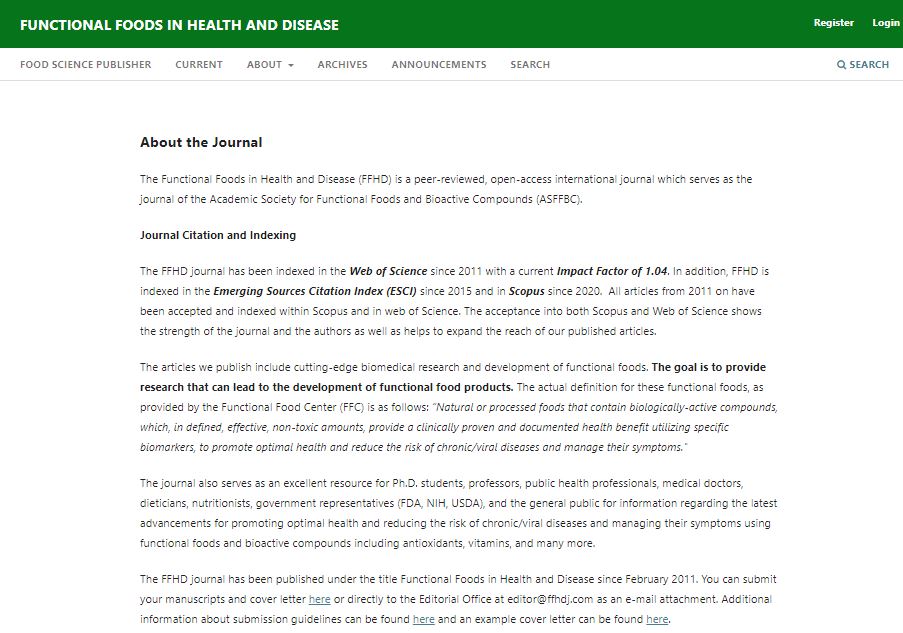
Tuna blood inhibits lipopolysaccharide-induced inflammatory mediators in RAW264.7 macrophages (2021)
Title : Tuna blood inhibits lipopolysaccharide-induced inflammatory mediators in RAW264.7 macrophages
Researcher : Wanwimol Klaypradit, Mantira Hawangjoo, Nujamee Ngasakul, Pennapa Chonpathompikunlert, Maruj Limpawattana, Wanida Sukketsiri
Department : สำนักอธิการบดี มหาวิทยาลัยสยาม
E-mail : maruj.lim@siam.edu
ฐานข้อมูลงานวิจัย มหาวิทยาลัยสยาม : –
Link to article: Functional Foods in Health and Disease, 2021, 11(4), 201-212. https://doi.org/10.31989/ffhd.v11i4.785
Journal : Functional Foods in Health and Disease / in Scopus
Bibliography : Klaypradit, W.,Hawangjoo, M., Ngasakul, N., Chonpathompikunlert, P., Limpawattana, M., & Sukketsiri, W. (2021). Tuna blood inhibits lipopolysaccharide-induced inflammatory mediators in RAW264.7 macrophages. Functional Foods in Health and Disease, 11(4), 201-212. https://doi.org/10.31989/ffhd.v11i4.785

Tunable Gm-C Floating Capacitance Multiplier (2018)
Title : Tunable Gm-C Floating Capacitance Multiplier
Researcher : Wipavan Narksarp*, Yongyuth Naras*, and Vinai Silaruam
Department : *Department of Electrical Engineering, Faculty of Engineering, Siam University
E-mail : wipavan.nar@siam.edu,yongyuth.nar@siam.edu
Bibliography : Narksarp, W., Naras, Y., & Silaruam, V. (2018). Tunable Gm-C Floating Capacitance Multiplier. In ECTI-CON 15th International Conference on Electrical Engineering/Electronics, Computer, Telecommunications and Information Technology (pp. 413-416). Chiang rai: Rajanangala University of Technology Lanna.